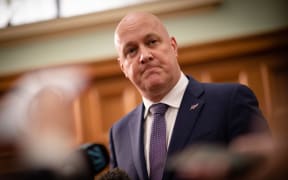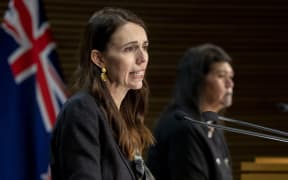Analysis - Christopher Luxon's attacks on the government over the cost of living and his promise to cut taxes pays off as National overtakes Labour in the latest poll, the Commerce Commission's report on supermarket competition draws scathing criticism and Parliament agrees unanimously to impose sanctions on Russia.
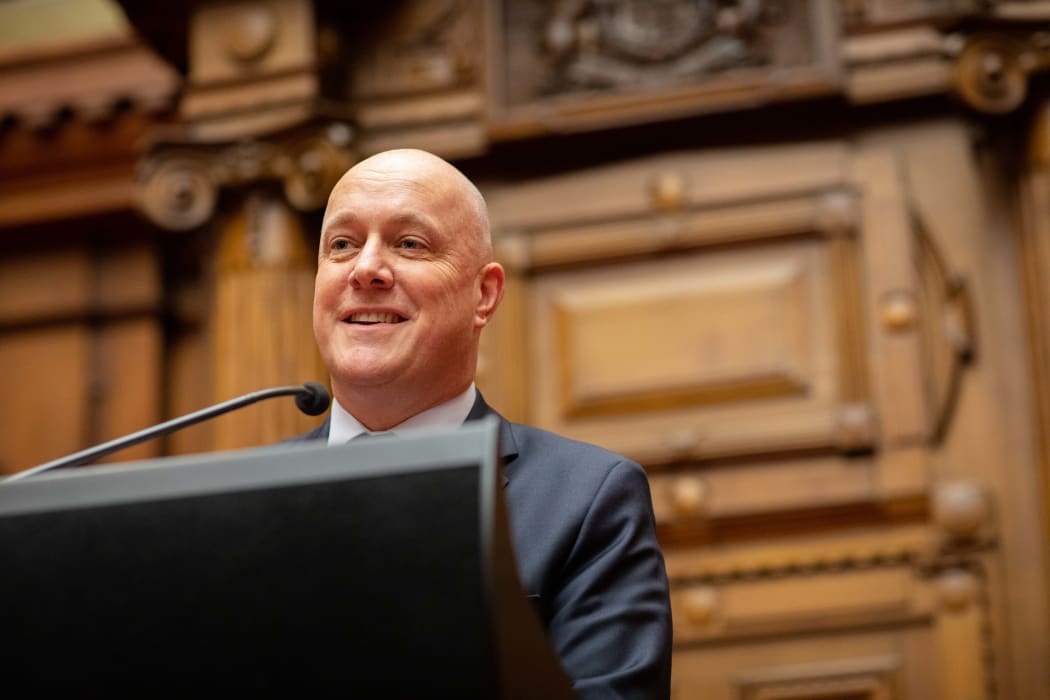
Christopher Luxon Photo: RNZ / Angus Dreaver
Since Parliament came back from the summer break National's leader Christopher Luxon has attacked the government over the spiralling cost of living.
Last Sunday he promised tax cuts to ease the burden, an unusually early move in the election cycle for a key policy announcement.
His tactics paid off big time, with the latest 1News/Kantar poll showing National ahead of Labour for the first time since before the pandemic.
National was up seven points to 39 percent while Labour lost three points to 37 percent.
And in the preferred prime minister stakes, Luxon made a big gain to reach 25 percent against Jacinda Ardern's 34 percent.
But when respondents were asked to choose between the two the gap narrowed right down, it was Ardern 46 percent and Luxon 45 percent.
"Well, well, well - take a bow, Christopher Luxon," the NZ Herald's political editor Claire Trevett said.
"Labour MPs will be very worried indeed… just four months after Luxon took over the ragged heap that was the National Party of 2021, he has managed to overtake Labour in the polls."
Trevett said the poll followed "an absolutely torrid few months" for the government as it dealt with Omicron, the anger of anti-mandate protests and rising inflation.
"It is a massive shift in just four months. And once a new leader gets momentum it tends to snowball, as Ardern herself knows," Trevett said. "People like to back a winner."
Stuff political editor Luke Malpass had the same view.
"The mood music to this poll has been the first genuine surge of Covid-19 in New Zealand; inflation running at 5.9 percent; petrol over $3 a litre and a protest that sat festering on the lawn of Parliament before ending in a riot," he said.
"The poll implies that the public is now far less satisfied with how Labour is dealing with Covid and the economy."
National had identified the cost of living as a win-win issue, and the poll showed it got that right.
It affects everyone, the government can do little, if anything, about it and it's going to get worse.
Inflation has increased dramatically in just a few months, driven mainly by the impact of Covid-19 internationally and now exacerbated by Russia's invasion of Ukraine which is driving up the oil price.
Read RNZ's explainer on inflation:
In his State of the Nation speech last Sunday, Luxon proposed helping people cope by adjusting the income tax brackets, but there was more.
Reported by RNZ, this is what he told his audience: "When I become prime minister I'll reverse Labour's tax grab. National will repeal each of these tax increases implemented by Labour."
He also said National would repeal the regional fuel tax, the extension to the bright-line test and the removal of interest deductibility for landlords.
Adjusting the tax brackets makes sense. They're subject to what's called "bracket creep" as wages and inflation increase, putting more and more people into higher brackets and therefore paying more tax.
The promise to repeal all the taxes introduced by Labour since 2017 is the really big one, and revealing it so far ahead of an election means there's lots of time for it to be picked apart.
As it happened, that didn't take long. "Luxon wriggles around answering whether National will remove highest tax rate" was Newshub's headline on Wednesday after an interview with him.
Labour introduced the 39 percent bracket on income over $180,000 in 2020.
"Asked directly whether he would remove it, Luxon wouldn't give a straight answer," the report said.
"The tax cuts would be in the context of a fully fiscally costed plan that we will go to the election with," he said.
"What we are saying is in principle we are going to remove the tax increases Labour has put in place."
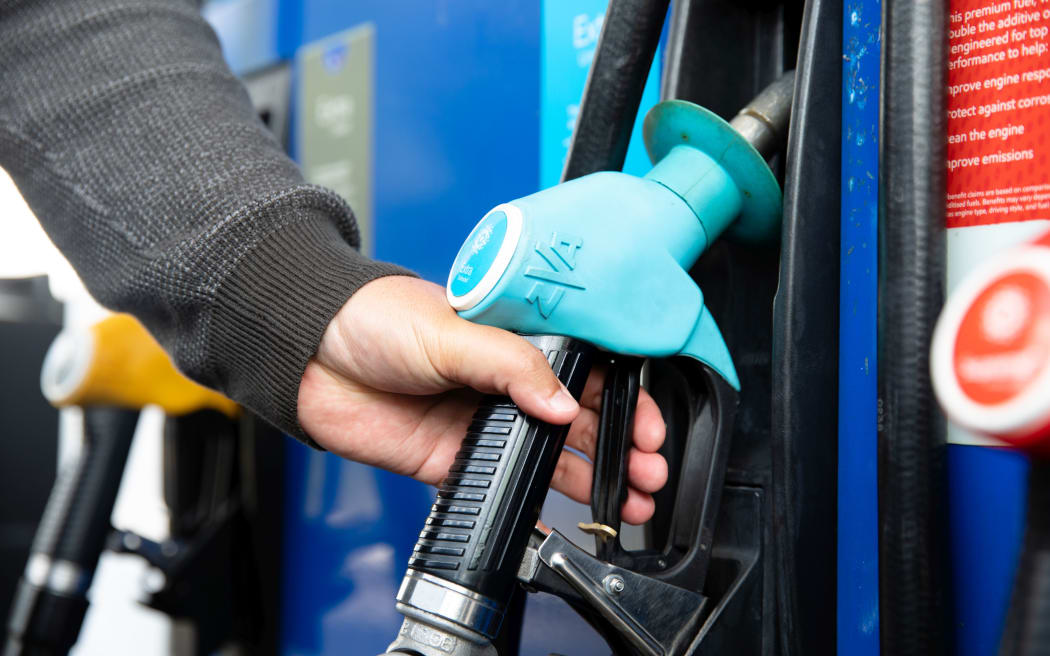
Luxon said National would repeal the regional fuel tax. Photo: RNZ / Dan Cook
Cost of living
Luxon may be wary about removing the top tax bracket because if he did Labour would almost certainly resurrect the ancient "National is looking after its rich mates" mantra. It probably wouldn't go down well with middle New Zealand either.
Auckland Mayor Phil Goff said the regional fuel tax funded vital infrastructure projects and if the fuel tax went rates would have to go up.
Luxon will have to handle the tricky issues as he goes along, but regardless of that the government, as Malpass put it, is on the back foot over the cost of living.
"Labour has clearly identified this as a dangerous issue," he said. "The problem with the cost of living is that it is a lose-lose for Labour."
Luxon is also scoring with his challenge to Prime Minister Jacinda Ardern in Parliament to acknowledge there is a "cost of living crisis".
Ardern refuses to describe it as a crisis, and plays heavily on the international issues that are pushing it up.
There's déjà vu here. When National was in power Labour hammered away at "the housing crisis" which the then government refused to acknowledge, instead preferring to call it "the housing shortage".
Ardern and Finance Minister Grant Robertson reacted to the tax cuts promise by describing it as "a tired old National Party" tactic which wouldn't deliver nearly as much as Labour's targeted support for low-income families.
Robertson said it would mean cuts to important services. "They need to front up to Kiwis and say which health, education and housing services they will slash."
Luxon in response told Morning Report: "I'm not talking about not spending money or making cuts to public services at all, but there is some really wasteful spending going on."
Supermarket report
On Tuesday the Commerce Commission released its final report on competition in the supermarket sector, and it fell way short of what had been anticipated.
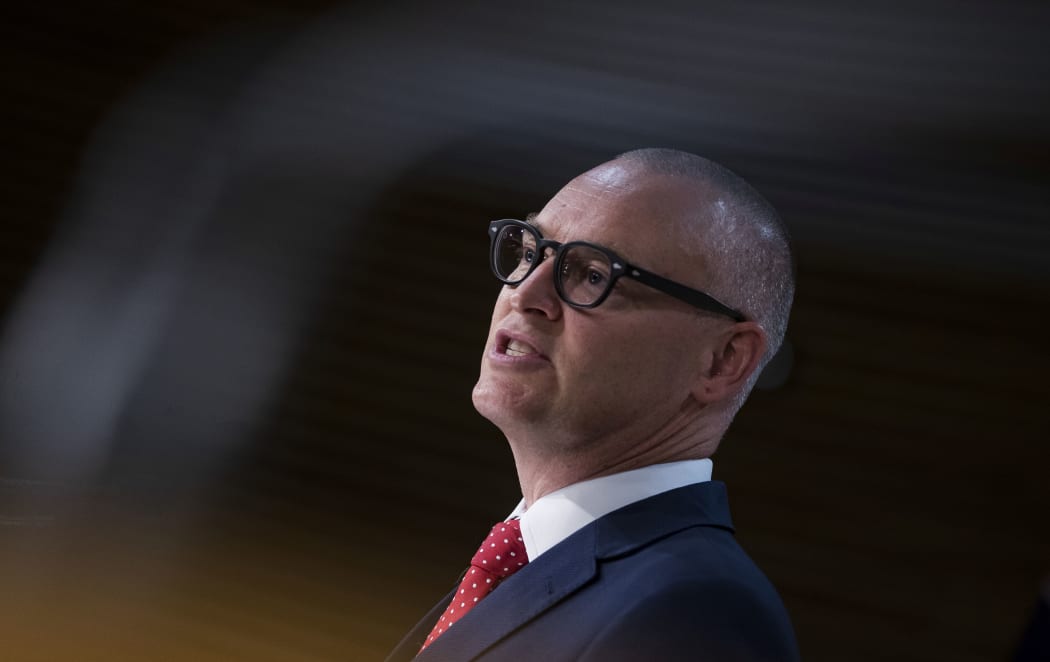
Commerce and Consumer Minister David Clark Photo: POOL / Stuff / Robert Kitchin
It estimated Foodstuffs and Countdown, which dominate the market, were making about $430 a million a year in excess profits but stopped short of recommending any radical changes to increase competition.
The details are in RNZ's report which explains recommendations including a mandatory code of conduct and ending the use of restrictive land covenants to stop competitors setting up shop.
Commerce Minister David Clark tried to sound enthusiastic about the recommendations, which he supported, and said if they didn't work he was prepared to go further.
Consumer NZ was very disappointed. "For the most part, the supermarkets can carry on with business as usual," chief executive Jon Duffy said in an article published by Stuff.
"They have what they wanted: suggestions rather than enforcement, theory rather than action," he said
"The supermarket giants will be breathing a sigh of relief… the final report means no relief for shoppers any time soon and leaves the really hard decisions for another day, another government, and most likely a different commission."
Stuff said in an editorial the commission's approach had been tepid. "Much as they may profess a heightened commitment to meaningful change, the report affords them (the supermarkets) the opportunity to buy time and figure out not only the least they can get away with but how slowly they might be able to drag out the process."
It said supermarkets were "creaming it" while food prices were a serious concern, and the government had to show it was prepared to act.
"The commission proposes a review of progress in three years ... David Clark surely knows the government, politically, has nothing like that time."
Russia sanctions
On Wednesday night Parliament went into urgency to pass the Russia Sanctions Bill after five hours of debate.
"New Zealand now has the power to impose significantly harsher sanctions on Russia over its invasion of Ukraine," RNZ reported.
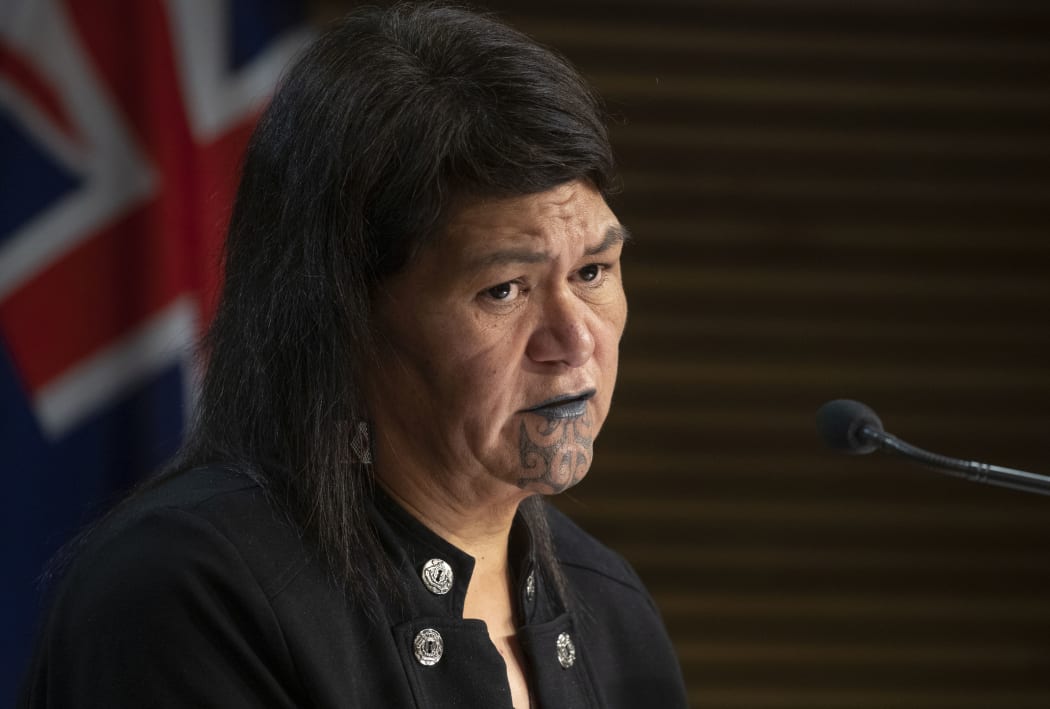
Foreign Minister Nanaia Mahuta Photo: Pool / NZME
Foreign Minister Nanaia Mahuta said New Zealand could step up and join the international resistance to Russia's invasion.
"The Russia Sanctions Act provides a legal framework which enables New Zealand to impose economic sanctions targeting specific people and companies, assets and services involved with Russia's aggression," Mahuta said.
The legislation is unprecedented. New Zealand's policy has always been tied to the United Nations, and it has imposed sanctions ratified by the UN.
That doesn't work with Russia because it is a permanent member of the UN Security Council and can veto sanctions. It has already vetoed a resolution condemning it for the invasion.
The bill passed unanimously and ministers are expected to announce the first tranche of sanctions in about a week.
While all the parties agreed on the bill, Immigration Minister Kris Faafoi faced criticism for being slow to make decisions about issuing visas for Ukrainians with family members in New Zealand.
The government is automatically granting a 12-month visa extension to 140 Ukrainians already in the country whose visas will expire by the end of the year.
It is also allowing about 250 Ukrainians with valid visas to travel here immediately.
National has repeatedly called for a humanitarian visa for the families of Ukrainians in New Zealand and immigration spokesperson Erica Stanford said the government's action was the bare minimum.
Faafoi said any decision on what more could be done was about a week away. "We have to understand what that might mean for numbers, what kind of support the community itself might be able to offer," he said.
That didn't satisfy Stanford. "He's sitting on his hands again taking advice and having a think about it while the bombs continue to fall on Ukraine," she said. "He needs to go."
*Peter Wilson is a life member of Parliament's press gallery, 22 years as NZPA's political editor and seven as parliamentary bureau chief for NZ Newswire.

